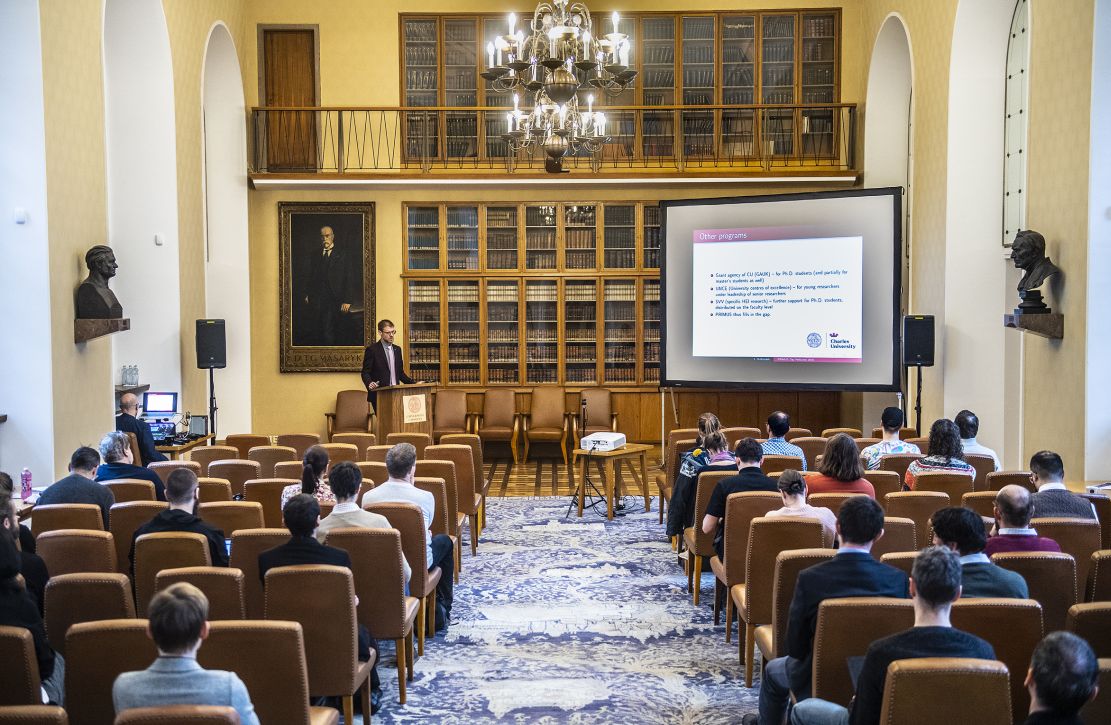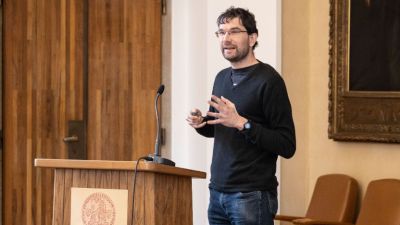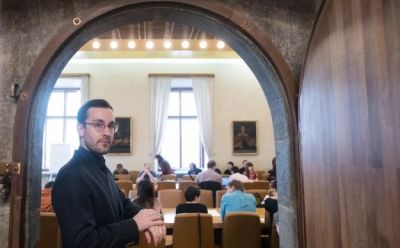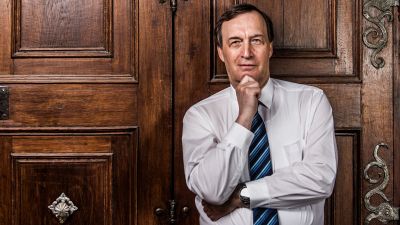More than 160 researchers have received support through the ground-breaking Primus programme (launched in 2017) enabling them to establish independent groups and to focus on truly innovative and pioneering research. Primus is unique in its aim of slashing red tape and freeing scientists to shoot for the moon. It is often seen as a crucial step in terms of future scientific success.
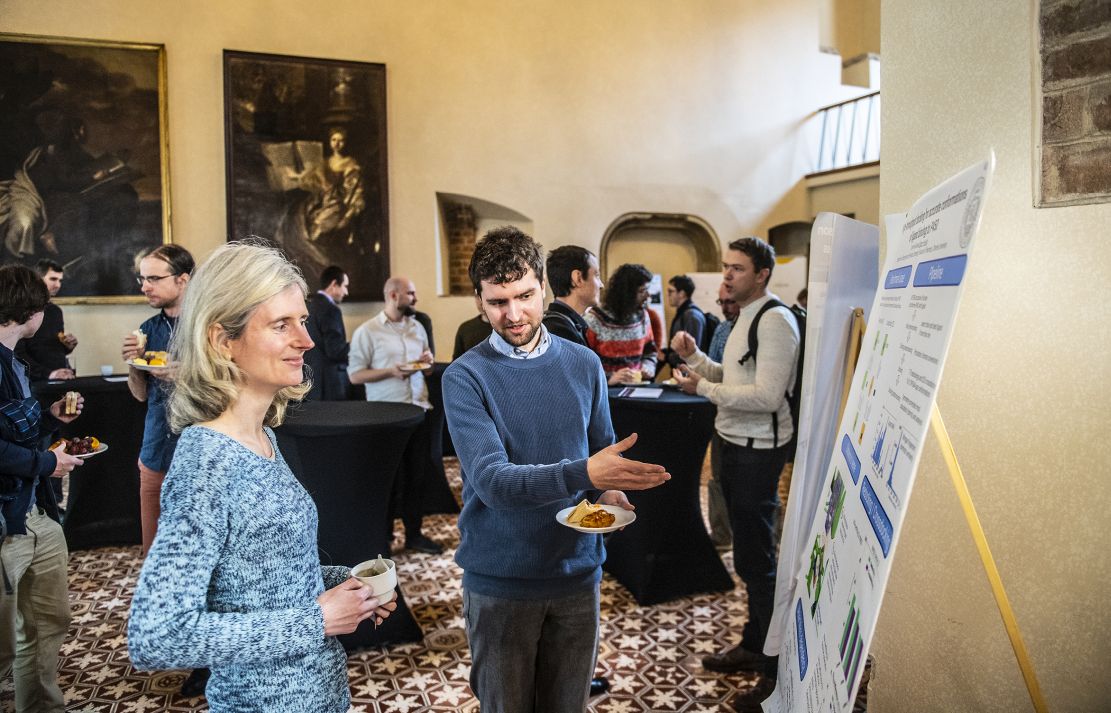
Primus investigators connect over presentations of their research at this year's Primus Day. This year ther event was held at CU in mid-March.
Despite the higher risks involved, Charles University recognises its continuing importance, the Vice-Rector for Scientific Research, Ladislav Krištoufek, stressed at this year's Primus Day event, held several weeks back.
“When it was founded, the programme aimed to boost the creation of research groups led by PIs with extensive international experience. It might seem like it was only a few years ago, and it was revolutionary and kind of still is within the Czech environment… international doesn’t mean only foreigners but Czechs abroad or returning home… It is meant for [candidates] up to eight years after receiving their PhD. This is our way of combatting the so-called brain drain – we are not draining brains… we are circulating minds.”
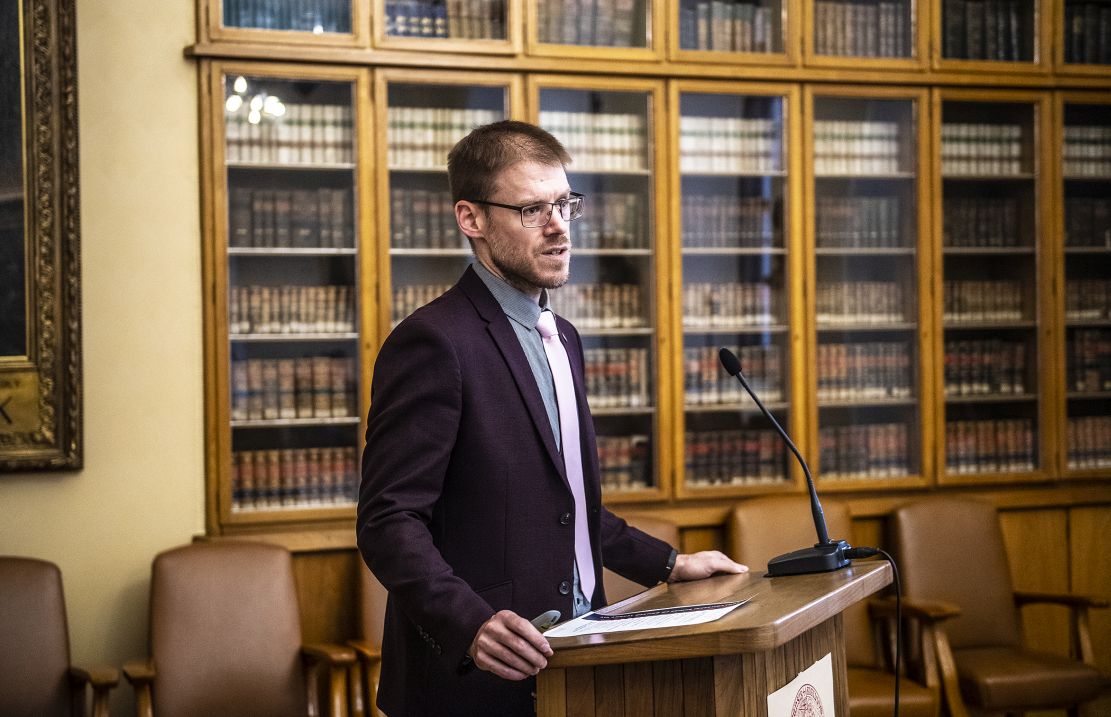
Vice-Rector Ladislav Krištoufek gives an informative overview of the Primus programme's unique strengths at Primus Day on 13 March.
The vice-rector also strongly emphasised the type of research sought under Primus, with what he called a certain ERC-logic in mind. What makes Primus special?
“Primus research projects should be mostly about frontier research, bold and daring ideas possibly leading to ground-breaking discoveries in the field. We are willing to take a risk. The ERC language has changed a little bit: the word frontier is used a little less and breakthrough more, but it doesn’t matter, right? The idea is the same. This is not something mainstream… this is supposed to be something that will really contribute to the field, even if it is not a sure thing.”
So far, the success rate across many scientific areas has been fairly high. CU has long noted that there is also a strong overlap: maybe not on their first try, but many PIs who led successful Primus projects applied successfully, for example, for ERC Starting Grants. One reason it was especially welcoming for PIs and other attendees to hear concrete case studies from two very successful scientists at CU, Michal Smetana and Zuzana Musilová. Anyone wanting to hear about truly innovative approaches, as well as know-how on what to expect and how to apply not only for Primus support fbut also to apply successfully later for an ERC Grant, is recommended to watch, if not the entire video below, at least their entries.
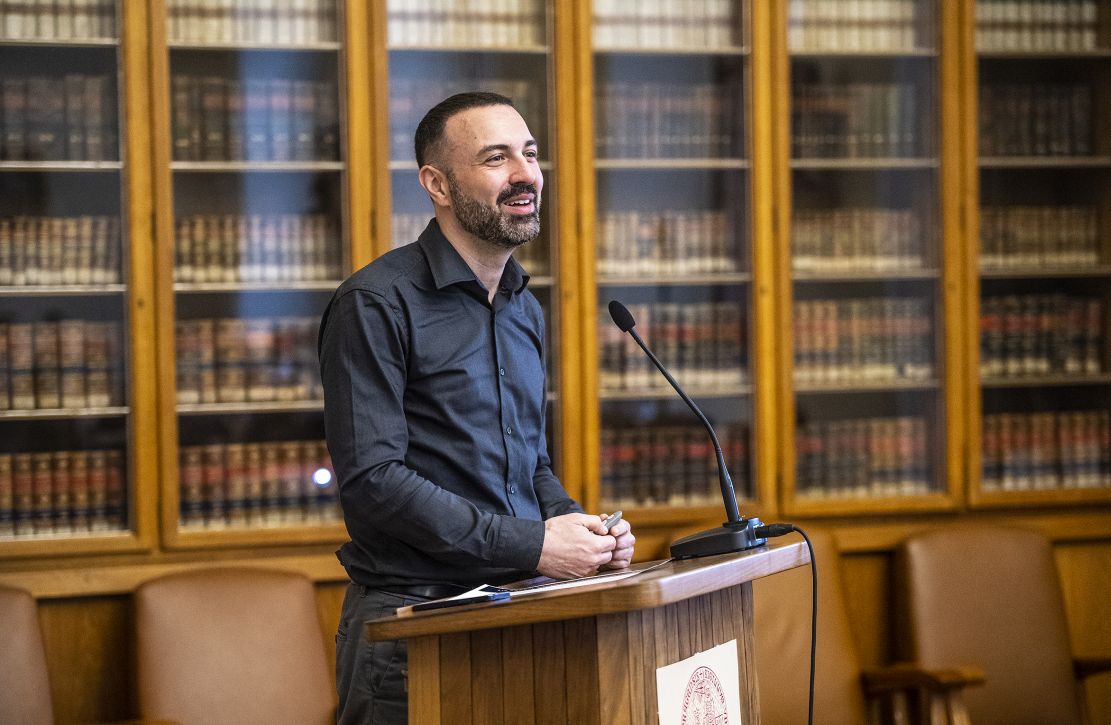
Michal Smetana at Primus Day 2025.
Here are a few tips that Michal Smetana and later Zuzana Musilová gave:
“It took one year to get to the point when I was ready to submit my project… that was proceeded by mock interviews, workshops, inputs from many others, advice, criticism, and it took a long time. That’s to give you an idea. The actual administrative aspects weren’t that complicated, but what took a long time was the preparation. I re-wrote my proposal so many times that the last version I submitted... was very far from the original idea. The overall ambition and pressure to clarify every aspect of the proposal was there and brought me to the eventual result.”

Zuzana Musilová at Primus Day 2025.
“My recommendation is that you can test some riskier or wilder ideas in Primus as opposed to a GAČR Grant. With the ERC you need to have enough time to write it. Make sure, also, that your faculty is fully informed and is on board. The faculty's involvement and backing is required and the workshops are really very helpful.”
Associate Professor Smetana received backing for a project called Microfoundations of Collective Defence (Microcode), utilising new methods of analysing public opinion on defence issues, while Dr. Musilová has made pioneering discoveries in how deep-sea fish actually see in depths of the ocean never reached by the sunlight. That, in fact, is one of the main drivers behind the annual event: to connect investigators and to inspire, reinforce and build a strong and daring community moving forward.
No Primus Day would be complete without the tireless work and a presentation by Charles University’s Zdeněk Strakoš, whose team and contribution has framed the discussion about why reaching for the top is so important. And who, through workshops run under the auspices of TAČR (the Technology Agency of the Czech Republic) with a lot of involvement from others, has helped prepare countless candidates for the rigorous process that is preparing for an ERC Grant. The process may be time-consuming and difficult but is also ultimately worth it: it is transformational. Here’s what Professor Strakoš said:
“You should not buy what some people – even some top people – have been saying here for decades: that ERCs are not for us. This is nonsense. ERC Grants are the basis for transforming Czech science. Originality grows from whatever you do by being the best.”

Professor Zdeněk Strakoš. The professor has played an enormous role in helping scientists prepare submissions for ERC Grants - across Czechia.
His entry was nothing if not motivational, beginning with a pointed reminder from Tolkien, whose The Lord of the Rings the mathematician said he was re-reading. He pointed to a passage where a minor character, an elf named Gildor, speaks to Frodo about the wider world and the dangers beyond the Shire, telling him that while hobbits can shut themselves in, they cannot indefinitely shut the world out. In other words, it is not enough to be satisfied with your own patch of grass and to parochially pat yourselves on the back, thinking you’ve done ‘enough’. If you want to be the best and make a meaningful difference in science, you must aim higher than ever before.
Primus Day at Charles University is more than just a gathering of scientists; it is a reminder of the potential of Czech research and the crucial role Charles University plays in nurturing the next generation of innovative thinkers. By encouraging and connecting investigators with one another, Primus Day is ensuring that the future of science at CU, and science as a whole, is in very capable hands.


